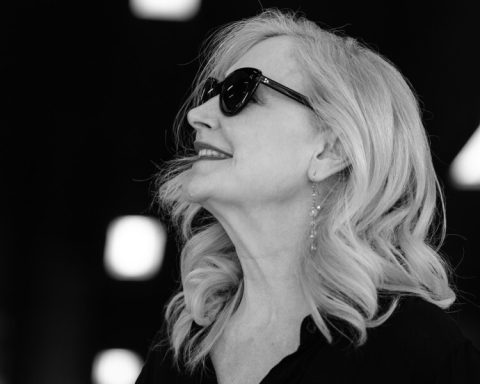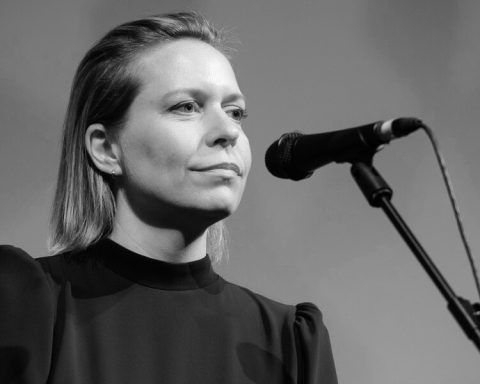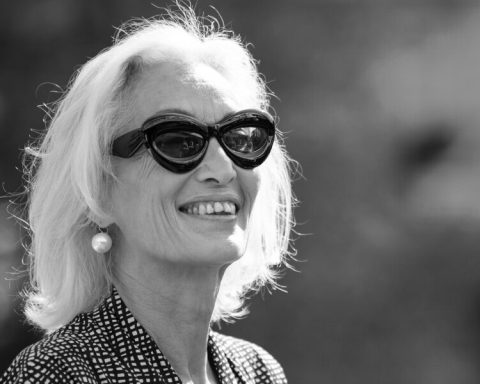In her feature film debut, Past Lives, Korean-Canadian US-based writer-director and playwright Celine Song follows a reunion between two childhood friends as they contemplate their relationship and their own lives. The film premiered at this year’s Sundance Film Festival and subsequently played at numerous festivals, including the Karlovy Vary International Film Festival.
Song says the tone of the film was the standard as far as tones go, “I wasn’t interested in leaning into the tragedy or the comedy, not to be so self-serious, but also not to be too light about it. And I think it’s more like finding something where you’re telling just the truth of something. And a part of it is going to be a little bit funny and a part is going to be a little bit sad. And I think that is the standard that we were talking about. It’s so much more about the authenticity of it.”
Even if the tone is standard, the ending of the film does feel tragic because it is also about facing our past self, “Nora got what she needed because she’s here, and she didn’t even realize that she needed him to come visit. But when he did, she realized something about herself, which is that she didn’t think that she needed to say goodbye to the little girl that she left behind in Korea. She didn’t feel like she needed to acknowledge that little girl. And then, of course, when she realized that she got to say goodbye, to me, in some ways, of course, it’s like what is tragic is that you can’t live ten lives at once… I think it’s so much more about well, you can only have one life, and you have to decide what kind of life you want to live. And, of course, what that means is you’re saying no to every other life that you could have,” Song explains.
She adds: “I wanted the lighting in that scene to be in the dark the same time that they were because what that goodbye is is a goodbye that they were owed for twenty-four years. So, I think it’s this thing where for twenty-four years they haven’t been able to say goodbye and then now after twenty-four years, they are able to say goodbye. That’s when Nora is then able to grieve that little girl.”
Song doesn’t think she has ever made anything that is not personal because when she is making a film or a play, it’s three years of her life. She also admits to not taking time off work, “I have to care about it in such a fundamental way. So, for that to be true, it has to be something that means something to me – is something that could hurt me, something that could make me feel happy. And I think in that way it is absolutely a personal story,” Song observes.
When people move from place to place, they usually do it so that they’re going there to get something, but a part of that is that they’re going to leave something behind – that is the duality and the contradiction of what Nora’s mother tells her in the film (that we have to give up certain things in order to gain others), “I think that when it comes to the way our childhood is I just know that in every single one of us there is a part of us that is twelve… Of course, we are this now, but also it doesn’t mean that every other person that we were before and every other version of our existence and our experience is not real. That is also real. And that is also how we got here. So, to me, that’s the leaving and the gaining because you’re going to leave the moment you have before and then getting something new. And I felt that way,” Song shares.
This was also reflected in her experience at the Sundance Film Festival, when the film premiered and the audience saw the film for the first time, “I remember standing in the back of the stage waiting to go on to present the movie. I remember feeling like ‘Oh, God. This was a secret that I had with me and the people who worked on the movie with me.’ It is something that only I knew was a thing that exists and now it’s going to be out in the world. And, of course, it’s so scary. And I feel like I’m losing something, which is privacy and intimacy. But then now, I get to show it to the world and you get something from that as in you can now see everybody else connect to it intimately. But, of course, you have to let that go. You have to let go of that. You have to leave that behind,” Song recalls.
Photo credits: KVIFF.
This interview was conducted at the 2023 Karlovy Vary International Film Festival.










